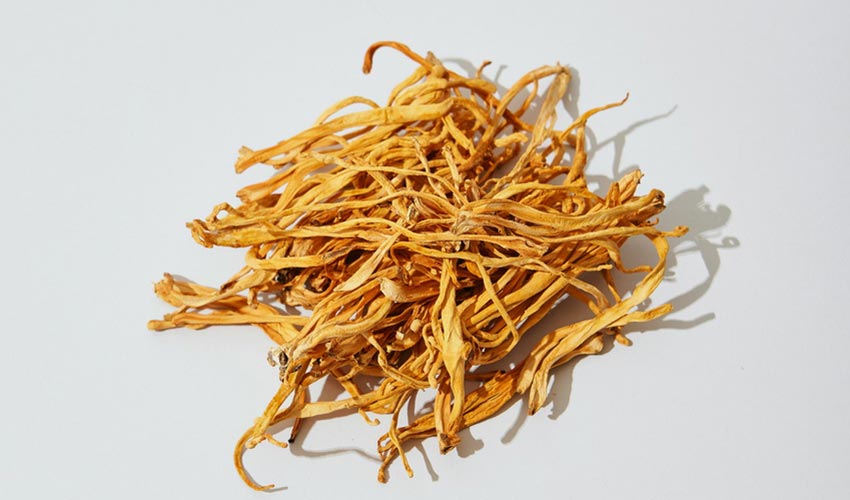My Personal Experience with the Adaptogenic Astragalus Root
Before telling you about my personal journey with Astragalus Root Powder, let me first paint a vivid picture of this extraordinary herb and its rich history. Astragalus membranaceus, commonly known as Astragalus, has been a cornerstone of Traditional Chinese Medicine (TCM) for millennia, revered for its remarkable properties and range of health benefits. This ancient herb is often blended with other healing botanicals, creating potent combinations aimed at fortifying the body’s defences against illness. What sets Astragalus apart is its classification as an Adaptogen, which is a powerful category of herbs that helps the body adapt to a variety of stresses, be they physical, emotional, or mental. It acts as a shield, safeguarding our well-being amid the pressures of modern life. Not only is it touted for its potential to bolster the immune system, reducing susceptibility to ailments like colds and upper respiratory infections, but it is also believed to play a role in warding off more serious conditions such as cancer and diabetes.
Packed with antioxidants, Astragalus Root helps combat cellular damage, its protective qualities extending to various facets of health. Its ability to lower blood pressure, assist in diabetes management, and provide liver support is well-documented. This remarkable herb doesn’t stop there; it also boasts antibacterial and anti-inflammatory attributes, making it a versatile ally in skin care, often applied topically for wound healing. Research into Astragalus has been extensive, with studies highlighting its antiviral capabilities and its potential to stimulate the immune system, showcasing its promise in preventing common illnesses like the cold. In the United States, scientific inquiries have explored Astragalus as a therapeutic option for individuals whose immune systems are compromised by chemotherapy or radiation treatments. Early results from such studies have been encouraging, suggesting that Astragalus Root might aid in recovery and enhance longevity for those battling serious health challenges.

Recent investigations in China have turned the spotlight on Astragalus’s role as an antioxidant, particularly in relation to cardiovascular health. Preliminary findings indicate it may alleviate symptoms in those suffering from severe heart disease, contribute to lower cholesterol levels, and enhance overall heart function. While Astragalus is generally well-tolerated at low to moderate doses, individuals should remain vigilant, as it can interact with various herbs and prescription medications. It’s also noted for being a mild diuretic, aiding the body in eliminating excess fluid. Now that I’ve set the stage, let’s embark on a journey through my own experience with this ancient herb and the transformative effects it had on my well-being…
Discovering Astragalus Root
My initial interest in Astragalus was sparked by a health scare that prompted me to explore natural ways to boost my immune system and overall wellness. I spent hours sifting through (alternative) health articles, blogs, and scientific studies. I learned that Astragalus, known scientifically as Astragalus membranaceus, has been traditionally used for its adaptogenic properties, which help the body deal with stress and enhance resilience. I was particularly intrigued by the idea that Astragalus Root Powder could support immune health, promote longevity, and even offer anti-inflammatory benefits. I was looking for something to support my body’s natural defences, and Astragalus seemed to tick all the boxes.
Making the Leap
With a sense of cautious optimism, I purchased a high-quality Astragalus Root Powder from Ancient Purity. About one week later the package arrived and as I opened the package, the earthy, slightly sweet aroma enveloped me, transporting me to the herbal shops of ancient China in my imagination. I decided to start gradually, adding 500mg of the fine, beige powder into my morning smoothies and herbal teas. (4 times daily) I also took some time to read about the proper dosages and the best ways to prepare Astragalus Root Powder. I learned that cooking it in broths could extract even more benefits, so I occasionally included it in my homemade soups.

The First Two Weeks
The first couple of weeks were a period of adjustment. I didn't experience any dramatic changes at first, but I felt a subtle shift in my energy levels. Mornings became a little brighter; I no longer reached for that extra cup of coffee as I once did. Instead, I found myself feeling more centred and focused, which was a welcome change from my usual mid-morning fog. And while I didn’t have any major illnesses at the time, I found myself feeling a bit less susceptible to the seasonal sniffles that often plagued my friends and co-workers. It was encouraging, to say the least. I was curious to see where this journey would take me.
A Month In
After a month of incorporating Astragalus Root into my routine, I started to notice even more distinct changes. I began to feel a robust sense of well-being; my energy levels were consistently sustained throughout the day. My workouts felt more invigorating, and I could recover more quickly from physical exertion. This newfound vigour allowed me to push through barriers that had previously felt daunting. Moreover, in moments of stress, whether due to work deadlines or personal challenges, I found that I could maintain a sense of calm that I hadn’t experienced before. My mind felt sharper, and my concentration improved. I realised that the adaptogenic properties of Astragalus Root Powder were working its magic on my mental resilience.
Skin & Overall Wellness
Around the six-week mark, I noticed improvements in my skin's appearance. Something I hadn't anticipated. My complexion seemed to reflect a more vibrant health. Friends started complimenting me, which further fuelled my enthusiasm for my new supplement routine. I learned that Astragalus Root has antioxidant properties, which are known to support skin health by combatting free radicals. Additionally, I felt a heightened sense of emotional balance. Astragalus Root appeared to help me navigate my daily stresses with grace and a clearer head. There were mood swings, as everyone experiences, but they felt less pronounced.
Reflections on My Experience
Reflecting on my journey with Astragalus Root, I can confidently say that this herb has earned its place in my health regimen. I appreciate its versatility. I enjoy taking it in a soothing cup of white tea, blended into a fruity morning smoothie, or infused in a hearty soup. It seamlessly fits into my daily life. As with any supplement, it's essential to listen to your body. While my experience has been overwhelmingly positive, I always recommend people to consult with their healthcare provider to tailor their wellness approach to their individual needs.
A Continuing Journey
Currently, I am continuing my exploration of this fascinating herb. I've started to delve deeper into the world of other adaptogens and herbal remedies, inspired by the benefits I've felt from Astragalus Root Powder. I’ve even begun to connect with communities who share similar interests in holistic health. In a nut shell, my experience with Astragalus Root Powder has transformed my understanding of natural wellness. It has not only enhanced my physical vitality but also enriched my emotional and mental well-being. For anyone contemplating incorporating Astragalus Root into their routine, I encourage you to embark on this journey with an open heart and mind. The potential rewards may just change your life, as they did mine. Should you be interested trying this ancient herb, learn more about Astragalus Root Powder here.

I hope you found my journey with Astragalus Root Powder intriguing! In the opening of this article, I touched on the concept of adaptogens, those remarkable substances that can profoundly influence our well-being. Now, let’s delve deeper into what an adaptogen truly is and explore the incredible benefits it can bring to your life…
Understanding Adaptogenics - Nature's Response to Stress
In a fast-paced world often characterised by relentless stress and constant demands, the search for natural remedies to enhance well-being has gained significant traction. One such remedy is Adaptogenic herbs. These natural substances have been used for centuries in traditional medicine, particularly in Ayurvedic and Chinese practices. But what exactly are Adaptogenics, and what can they do for you? This article delves deep into the world of Adaptogenics, exploring their benefits, uses, and the science behind them.
What Are Adaptogenics?
Adaptogenics are natural substances that are primarily derived from plants and herbs and classified for their ability to help the body adapt to stress and to promote balance in bodily systems. The term "Adaptogen" was coined in the 1940s by Russian scientist Dr. Nikolai Lazarev, who studied the potential of certain herbs to enhance physical and mental performance under stress. For a substance to be classified as an adaptogen, it generally needs to meet specific criteria:
- Non-Toxic: The substance should be harmless to the body and not produce any side effects.
- Normalising Effect: It should help bring the body back to a state of equilibrium, regardless of the stressor.
- Broad-Spectrum Action: It should positively affect various physiological processes rather than targeting a single system.
Some well-known Adaptogenic Herbs include: Astragalus Root, Maca Root, Ashwagandha, Rhodiola Rosea, Ginseng, Holy Basil (Tulsi), and Schisandra. Some of the Adaptogenic Mushrooms include: Reishi, Maitake, Lion’s Mane, Cordyceps, Chaga, Turkey Tail and Shiitake.
How Do Adaptogens Work?
Adaptogens are thought to work primarily by modulating the hypothalamic-pituitary-adrenal (HPA) axis, the system responsible for the body's stress response. When the body perceives a threat, the HPA axis triggers the release of stress hormones, such as cortisol. Prolonged or chronic stress can lead to a state of dysregulation, causing various health problems. Adaptogens help regulate this process by:
- Reducing the Production of Stress Hormones: They help regulate cortisol levels, preventing the harmful effects of prolonged exposure to this hormone.
- Enhancing Resilience: Adaptogens may bolster the body’s innate ability to handle stress physically, mentally, and emotionally.
- Balancing Neurotransmitter Levels: Some Adaptogens can also modulate mood by influencing levels of neurotransmitters, such as serotonin and dopamine, contributing to improved mental clarity and emotional stability.
- Supporting Immune Function: By promoting balance in the body, Adaptogens can also help support the immune system and reduce the overall impact of stress on health.

Benefits of Adaptogens
Stress Relief & Anxiety Reduction
One of the primary benefits of Adaptogens is their ability to mitigate stress. Studies have shown that herbs like Ashwagandha and Rhodiola can significantly reduce anxiety and stress levels, resulting in improved mood and a sense of calm. This is particularly valuable in modern society, where anxiety disorders have become increasingly prevalent.
Improved Energy & Reduced Fatigue
Adaptogenic herbs like Rhodiola Rosea are known for their energising properties. They can help improve stamina, combat fatigue, and enhance overall physical performance. By supporting adrenal function, the small glands responsible for hormone production, Adaptogens can help improve your energy levels, especially during stressful periods or intensive training.
Enhanced Cognitive Function
Certain Adaptogens, such as Tiger Milk Mushroom and Lion’s Mane, have been shown to support cognitive performance and mental clarity. They may enhance focus, memory retention, and even creative problem-solving. This effect is attributed to their ability to enhance blood flow and neuroprotective properties.
Hormonal Balance
Adaptogens can promote hormonal balance in both men and women. For women, herbs like Maca Root and Holy Basil have been linked to improved menstrual health and reduced symptoms of PMDD (premenstrual dysphoric disorder). In men, Adaptogens like Fenugreek may help increase testosterone levels.
Immune Support
By helping the body adapt to stress, Adaptogens also play a crucial role in supporting the immune system. Chronic stress can lead to immunosuppression, making one more susceptible to illness. Adaptogens like Elderberry and Reishi Mushroom can bolster immune responses, promoting overall health.
Anti-Inflammatory Properties
Several Adaptogens possess anti-inflammatory compounds, which can help reduce inflammation throughout the body. Chronic inflammation is linked to numerous health conditions, including heart disease, diabetes, and autoimmune disorders. Herbs like Turmeric (though not strictly classified as an Adaptogen, often used in conjunction) can be beneficial in this regard.
Integrating Adaptogens into Your Lifestyle
How to Use Adaptogens
Adaptogens can be consumed in various forms. They come in powders, capsules, teas, tinctures, or extracts. Here are some common methods to incorporate them into your routine:
- Teas: Many Adaptogenic herbs can be brewed into a soothing tea. For example, Holy Basil, Astragalus Root, and Ashwagandha make excellent herbal teas.
- Smoothies: Adding Adaptogenic powders, like Ashwagandha or Maca, to your morning smoothie can give you an energising boost.
- Capsules: For those who prefer a more straightforward approach, Adaptogenic herbs can be taken in capsule form.
- Tinctures: Liquid extracts can offer a concentrated form of Adaptogens for those needing quick relief.

Starting Slowly
It's advisable to start with small doses to assess tolerance. Each person's response to Adaptogens can vary, so adjusting the dosage and combination of herbs to meet individual needs is essential.
Consulting with Professionals
As with any supplement, it’s crucial to consult with a healthcare professional before starting any new regimen. People with pre-existing medical conditions or those taking medications should practice caution and seek professional advice.
Adaptogens present a fascinating and promising approach to managing stress and enhancing well-being naturally. With their rich history in traditional medicine and increasing recognition in modern wellness, Adaptogens offer a wealth of benefits that can help us navigate the complexities of contemporary life. Though more research is needed to fully understand their mechanisms and effects, incorporating Adaptogenic herbs into your daily routine can be a refreshing way to foster resilience, support mental clarity, and promote overall health. As you explore these powerful allies, remember that balance, both in nature and within ourselves, is the key to holistic well-being.
“Nature holds the key to our aesthetic, intellectual, cognitive and even spiritual satisfaction.” - E.O. Wilson






















